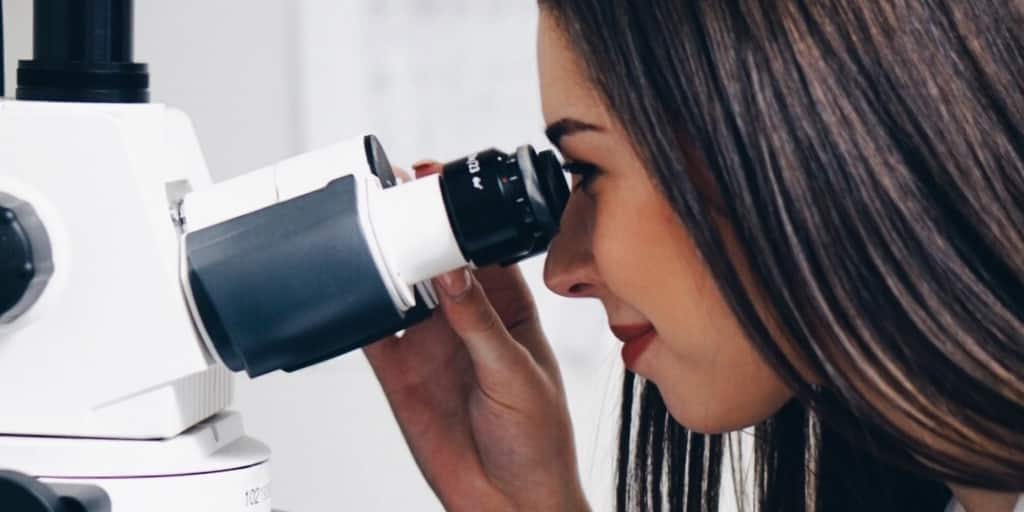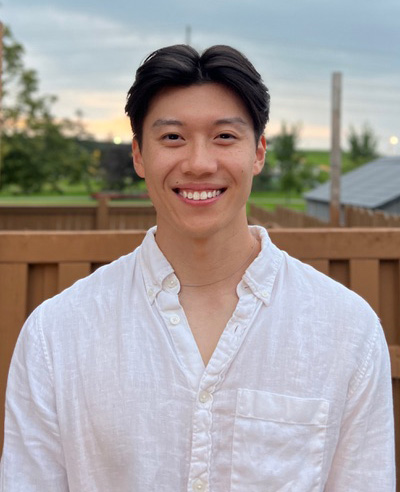1. Welcome back to the TBCRU. Please remind our readers who you are and share something about yourself?
My name is Natasha Knier. I am a third-year Ph.D. Candidate in the Department of Medical Biophysics at Western University, supervised by Dr. Paula Foster. I completed my Bachelor of Science in Health Sciences at the University of Waterloo.
2. As a senior researcher, why is the TBCRU Studentship Award important to you? How does it allow you to advance your research?
I am very thankful for the continuous support of the TBCRU and Breast Cancer Society of Canada. This studentship award allows me to move forward in my preclinical research and offer more insight into this disease to help the progress in this field.
3. In a few lines, can you remind us what you are doing and what problems you hope to solve with your research?
The goal of my work is to learn more about why breast cancer sometimes recurs after what was thought to be a successful treatment. Lifestyle factors that cause chronic inflammation are associated with an increased risk of breast cancer recurrence. So we aim to use magnetic resonance imaging (MRI) to see how inflammation affects cancer cells and tumour growth within the brain.
4. Since we last spoke, have there been any changes to or any advancements in your research?
My first manuscript related to breast cancer imaging has been published in Clinical & Experimental Metastasis, available here. My second manuscript on imaging a patient-specific model of breast cancer is now available as a preprint. Our lab has also recently published a perspective paper on magnetic particle imaging (MPI), focusing on recent advancements in the field and using MPI for cancer cell tracking.
5. Have you had an opportunity to present your research to your peer researchers? Was it at a national or international meeting or in some other way?
I am thankful to have had several opportunities to present at both national and international conferences, including the World Molecular Imaging Congress and the Women in Molecular Imaging Seminar Series hosted by the World Molecular Imaging Society. More local conferences include the Progress in Cancer Research Symposium, the Ontario Institute of Cancer Research Translational Research Conference, and the Imaging Network Ontario Conference.
6. Did that presentation setting help you share your breast cancer research with the broader scientific community?
Yes, absolutely! Presenting at conferences is a great way to share research with others who may provide insight on how to progress your work and pave the way for future collaborations in the field.
7. Did any of the feedback or conversations that came about from presenting your research help you and your research in any way?
The conversations from presenting my work have helped to advance my projects greatly. They have helped me consider different approaches and address challenges that I’ve encountered throughout my research.
8. Now that you have had some more time with your research, how do you think your research will be applied in a real-world situation?
We hope our research investigating the spread of breast cancer to the brain will help us understand the risk factors contributing to cancer recurrence. While there are still many important questions to be answered, this work is a crucial step towards understanding inflammation as a risk factor for those with cancer.
9. Tell us about your involvement in the Breast Cancer Society of Canada fundraising events (Dress for the Cause, Mother’s Day Walk)?
In 2020 I participated in both the One Billion Steps Challenge and Dress for the Cause! My dog and I counted our steps for our daily walks towards the One Billion Steps Challenge to raise over $700 for cancer research! For the Dress for the Cause event, due to COVID-19, other students and I planned a virtual games night and silent auction with items provided from generous donors that allowed us to raise even more funds for important breast cancer research.
10. What about your participation in other Breast Cancer Society of Canada donor events or tours? How has that impacted your perspective on breast cancer research?
Being a part of BCSC events has helped me understand that progress in this field is made by collaborative efforts between researchers, scientists, the community, and those involved with BCSC. I am reminded we all are working towards a cure and creating positive change for patients and families affected by breast cancer.
11. What are you currently reading, watching or listening to outside of the lab?
Outside of the lab, I love watching stand-up comedy and sitcoms on Netflix, and more recently, the new Marvel shows coming out on Disney+!
SUPPORT RESEARCHERS LIKE NATASHA KNIER.
PLEASE DONATE TO THE BREAST CANCER SOCIETY OF CANADA TO HELP FUND LIFE-SAVING RESEARCH, VISIT BCSC.CA/DONATE TODAY.




